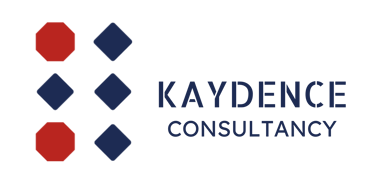Kaydence partners with the CSH to drive innovative solutions in education and healthcare.
Unlocking Opportunities with an Economics Degree: Careers, Skills, and Insights
Explore the diverse career paths and skills that come with an economics degree! From finance and government to global development, this blog delves into the value of studying economics, the subjects you'll learn, and what you can do with the degree. Plus, discover how economics graduates are shaping industries and society, and find out which famous figures made their mark with an economics background.
EDUCATION AND LEARNING
2/17/20253 min read


What Can You Do with an Economics Degree?
An economics degree provides students with a deep understanding of how markets, businesses, governments, and individuals make decisions and allocate resources. This knowledge equips graduates with valuable skills such as problem-solving, data analysis, and critical thinking, making them highly sought after by employers across many sectors.
Popular Careers for Economics Graduates: Economics graduates can pursue a wide range of careers, including:
Economist – Analyzing data and trends to provide insights on economic policies, business strategies, or governmental decisions.
Financial Analyst – Assessing financial data to help companies make informed investment decisions.
Policy Advisor – Advising governments or organizations on economic policies to improve public welfare.
Market Research Analyst – Collecting and analyzing data to understand market trends and consumer behavior.
Accountant – Managing financial records and ensuring businesses comply with financial regulations.
Consultant – Offering expert advice to businesses, governments, or non-profits on economic issues and strategies.
Investment Banker – Helping businesses raise capital and advising on mergers, acquisitions, and financial investments.
Risk Analyst – Assessing financial risks for businesses and helping them mitigate potential losses.
Economic Development Specialist – Focusing on improving the economic well-being of a region, city, or country.
Academia/Researcher – Conducting economic research, publishing papers, and teaching at universities.
What Will You Learn in an Economics Degree?
An economics degree covers a range of topics, focusing on both theoretical and applied aspects of economics. Key areas of study typically include:
Microeconomics – The study of individual markets, consumer behavior, and the decision-making processes of businesses.
Macroeconomics – Understanding larger-scale economic factors like inflation, unemployment, and national economic performance.
International Economics – Studying trade, finance, and global market dynamics.
Econometrics – Applying statistical methods to economic data to test theories and predict trends.
Development Economics – Focusing on improving the economic conditions in developing countries.
Public Economics – Analyzing government policies, taxation, and public spending.
Behavioral Economics – Exploring the psychological factors that influence economic decisions.
Many economics degree programmes also involve quantitative methods, such as mathematical models and data analysis, to prepare students for careers in finance, consulting, and policy analysis. Some programs include internships or fieldwork opportunities to gain hands-on experience in the field.
What Should You Study to Pursue an Economics Degree?
Most universities accept students from a range of academic backgrounds, although a strong foundation in mathematics and economics at the school level is advantageous. Since economics relies heavily on quantitative analysis, students with a background in mathematics, statistics, or business studies may find the degree more manageable.
While some schools may require specific subjects, most institutions focus on general entry requirements such as strong analytical skills and an interest in understanding how the world works.
Economics students should also cultivate an interest in global issues, as the field is often interconnected with politics, sociology, and environmental concerns. Being curious about how businesses, governments, and individuals make decisions will serve students well throughout their studies.
What Do Economics Graduates Go On to Do?
Economics graduates are highly valued for their ability to analyze data and make informed decisions. They work in a variety of industries, including finance, government, healthcare, international development, and consulting.
Finance: Many economics graduates find careers in investment banking, financial analysis, or risk management, helping businesses and individuals make informed investment decisions.
Government: Graduates may work in public policy, helping to shape government strategies on issues such as taxation, welfare, and employment.
Business: Economics graduates are often employed as consultants or market analysts, helping companies make strategic decisions and understand market dynamics.
International Organizations: Many go on to work for international organizations such as the UN or the World Bank, focusing on global trade, development, or economic stability.
Graduates with specialized training in econometrics or data science are also in high demand, with job opportunities in data analysis, business intelligence, and economic forecasting.
Famous People Who Studied Economics
Economics has shaped the careers of many notable figures in various fields. Some famous individuals who studied economics include:
Alan Greenspan – Former Chairman of the Federal Reserve, known for influencing global financial policy.
Amartya Sen – Nobel laureate economist known for his work on welfare economics and social justice.
Janet Yellen – Former chair of the Federal Reserve and current Secretary of the Treasury of the United States.
Joseph Stiglitz – Nobel Prize-winning economist known for his work on the economics of information and globalization.
Paul Krugman – Nobel laureate economist and columnist, famous for his work on international economics and trade.
These influential figures have demonstrated how an economics degree can lead to significant contributions in fields ranging from government policy to global finance.
Conclusion:
An economics degree provides a deep understanding of the forces that shape our world. With its emphasis on critical thinking, quantitative analysis, and problem-solving, it opens doors to a variety of career paths in finance, consulting, government, and more. Whether you're analyzing market trends, advising governments on policy, or working in global development, an economics degree provides the tools needed to make a lasting impact.
Kaydence Consultancy
Global platform for study abroad solutions, marketing strategy and your efficient research partner
Contact
Get in touch
director@kaydenceconsultancy.com
+9188916082
© 2025 Kaydence Consultancy. All rights reserved.
Designed with care | Powered by Innovation
Navigation
Company
Career
Legal
M G Road, Kochi, Kerala, India
